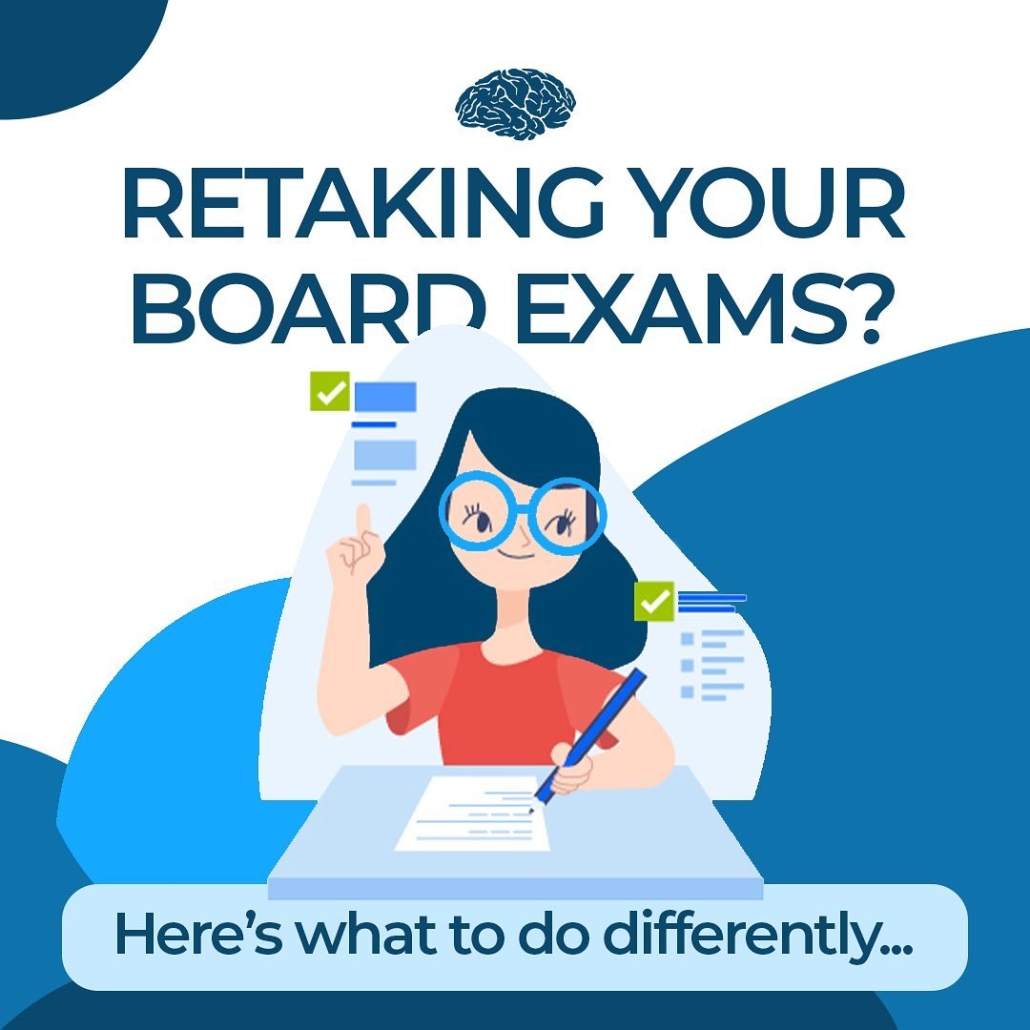The time has finally come… you’re locked in, ready to go, and you’re going to ace your retake exam. Why? Because you’ve followed our TOP 5 tips that ensure your success in passing your Psychiatric Board Exam with ease!
1 – Analyze Your Weak Points
If you know where you struggled with most in the last board exam you can hone in on intaking as much information as you can retain. These don’t need to just be areas you did pool on previously, but could also be ones that could be further reinforced. Try out My Psych Board’s customizable tests that zero in on your most missed questions!
2 – Focus On The NOW
The past is the past, there’s no point in going back! The only way to move in a positive direction is forward. Learn from your mistakes and how you can apply what you’ve learned for better-guaranteed results. If you stay focused on past failure it’s only going to bring negativity and additional stress to your study sessions.
3 – Create A Plan
When studying it’s essential to make the most of your time. Create a plan tailored to your needs. Before you can even begin studying you need to make sure you have all the resources you need. Organize items into folders, check you have all the materials you need, and tidy up your study spot.
4 – Utilize Detailed Questions Banks (like ours here)
With detailed Q-Banks, you’ll get the blueprints, questions, detailed information, vignettes, and more! Within the question breaks, you can get real-time feedback on correct answers, and learn where you’ll need to continue to improve.
BONUS TIP: Did you know we offer FREE Trials of all of our Question Banks? Click here to try today (with no credit card required…)
5 – Take Regular Breaks
As with anything don’t overdo it, You need to ensure you aren’t pushing yourself too far! When you’re studying and preparing for the exam you’re taking a mental health break. This will help break up your studying time, keep you from feeling overwhelmed, and ensure you’re retaining all the information you’re taking in.
Still, feeling uneasy? Contact us and we can help YOU pass your boards with ease!




How to avoid maladaptive coping with Stress
/in Health and WellnessStress can lower our threshold for coping with daily inconveniences, and this can compound when we have bigger stressors we’re dealing with. There are times when you may feel overwhelmed with life. Being around people, sounds, and stimulation might tip you over the edge and you just want to curl up in the dark by yourself. It’s essential to maintain a healthy balance between spending time alone and socializing, especially when we’re stressed.
When we’re stressed, our instinct might be to retreat into solitude, which can be helpful in some cases. However, it’s crucial to pay attention to not isolate oneself entirely. Socialization can have a positive impact on our mental and physical health and help us manage stress. Further, prolonged isolation may deter our ability to adequately cope with our stressors.
Spending time with friends, family, and loved ones can provide emotional support and help us cope with difficult situations. Being around people we trust and who care about us can reduce feelings of loneliness and anxiety. It can also boost our mood and increase our sense of happiness and well-being. Not only is it protective to our mental well-being, it can even influence our physical wellbeing!
However, it’s also essential to make time for solitude. Time alone can be valuable for self-reflection and personal growth. It allows us to recharge and can help us manage stress by giving us time to process our thoughts and feelings.
The key to maintaining a healthy balance between time alone and socializing is to pay attention to our needs and preferences. It’s okay to say no to social events if we need some alone time, but it’s also important to make an effort to connect with others regularly.
Curious what My Psych Board is all about?
Give our question banks a try- FREE- using our Free Trial! Or if you’re ready to take the plunge, check out our Question Banks and find the perfect fit for you! Or, contact us with any questions you have so we can get you on the right path today!
The Answer is in: How much you NEED to study
/in Board Prep, General, StudyingStudying can be a daunting task for many students, and there’s a stigma around how much time one should spend studying. Some believe that studying as much as possible is the key to getting good grades. This person might carry their books with them and cram in as much as they can every spare minute they have. Some others find that a last minute sweep over general content refreshes their recollection and gets them as ready as they need.
On one hand, the person cramming constantly may cover more material, but studying too much can lead to burnout and negatively impact one’s overall well-being. On the other hand, the person barely cracking open a book may find themselves sorely unprepared when test time comes. So, what’s the sweet spot?
While there’s no one-size-fits-all answer, the ideal amount of time to study varies from person to person and is dependent on various factors. Some research suggests that spaced-out studying over time and practice testing can improve retention and learning. However, it’s important to find a study routine that works for you, based on your personal learning style and schedule.
Instead of focusing solely on the amount of time you spend studying, it’s crucial to prioritize the quality of your study sessions. Active engagement with the material, such as quizzing yourself or practicing with flashcards, can be more effective than passive reading.
It’s also important to balance your academic work with other aspects of your life. Taking breaks and pursuing other interests outside of studying can help prevent burnout and promote overall well-being. Finding the right balance between studying and personal life is key to long-term success and happiness.
Ready to start studying?
Give our question banks a try- FREE- using our Free Trial! Or if you’re ready to take the plunge, check out our Question Banks and find the perfect fit for you! Or, contact us with any questions you have so we can get you on the right path today!
How to Keep Studying, Even in the Summer
/in Board Prep, StudyingSummer is here, the sun is shining, and who wants to be stuck inside? Unfortunately, the seasons don’t pay attention to our responsibilities. Studying can be a challenging and sometimes frustrating experience, especially when the weather is calling us to go do other things. It can be difficult to focus for extended periods, retain information, and stay motivated over time. However, with the right strategies and mindset, you can improve your efficiency and effectiveness as a student.
Here are some specific strategies that can help you become more efficient and effective at studying:
To become more efficient at studying, it’s important to develop strategies that address these challenges directly. For example, planning your study sessions and breaking down large goals into smaller, manageable tasks can help you stay focused and motivated. Creating a conducive study environment and using study aids can help you retain information more easily. Finally, taking regular breaks and staying positive can help you avoid burnout and stay motivated over time.
Ready to stay motivated this summer?
Give our question banks a try- FREE- using our Free Trial! Or if you’re ready to take the plunge, check out our Question Banks and find the perfect fit for you! Or, contact us with any questions you have so we can get you on the right path today!